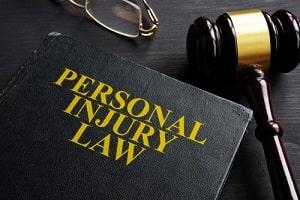Recent Blog Posts
Can You Sue for Emotional Harm Caused by Intentional Actions in Wisconsin?
 If you were harmed by someone else’s intentional actions, you may be able to assert your rights, hold the wrongdoer accountable, and recover damages through a civil claim. Personal injury claims often involve injuries caused by negligence or carelessness such as car accident injuries. However, a personal injury claim may also be brought by someone who is injured intentionally. Victimology is the area of law that deals with personal injury claims for victims of assault, abuse, and other forms of intentional harm. A victimology claim may allow you to recover financial compensation for emotional distress and other damages.
If you were harmed by someone else’s intentional actions, you may be able to assert your rights, hold the wrongdoer accountable, and recover damages through a civil claim. Personal injury claims often involve injuries caused by negligence or carelessness such as car accident injuries. However, a personal injury claim may also be brought by someone who is injured intentionally. Victimology is the area of law that deals with personal injury claims for victims of assault, abuse, and other forms of intentional harm. A victimology claim may allow you to recover financial compensation for emotional distress and other damages.
Suing for Physical Injuries and Emotional Distress
A personal injury claim is a civil claim that an injured person may use to collect monetary compensation for “damages” or losses that the injured person sustained because of the injury. Damages usually include financial losses such as medical bills and lost income from missed work. Damages may also include non-financial harm caused by the injury including physical pain, mental suffering, and emotional distress. In most personal injury claims, compensation for non-financial damages, such as mental and emotional distress, are only available if the person suffered a physical injury. For example, if a person suffered a broken nose during an assault and battery, that person may be compensated for emergency room bills as well as the pain and suffering he or she endured because of the broken nose.
Will I Have to Register as a Sex Offender If I Was Accused of a Sex Crime?
 Criminal charges of any kind have the potential to dramatically alter the course of an individual’s life. However, few allegations compare to being accused of a sex crime. If you have been accused of a criminal offense related to indecent exposure, child pornography, sexual assault, or criminal sexual abuse, you could be facing severe criminal and personal consequences. In Wisconsin, individuals who are convicted of certain sex-based offenses are required to register as sex offenders for a minimum of ten years. This means that the offender’s name, picture, and other identifying information will be publicly available on the sex offender website.
Criminal charges of any kind have the potential to dramatically alter the course of an individual’s life. However, few allegations compare to being accused of a sex crime. If you have been accused of a criminal offense related to indecent exposure, child pornography, sexual assault, or criminal sexual abuse, you could be facing severe criminal and personal consequences. In Wisconsin, individuals who are convicted of certain sex-based offenses are required to register as sex offenders for a minimum of ten years. This means that the offender’s name, picture, and other identifying information will be publicly available on the sex offender website.
Which Crimes Require an Individual to Appear on the Wisconsin Sex Offender Registry?
An individual must appear on the sex offender registry if he or she is convicted of a misdemeanor or felony sex offense listed in the Wisconsin Statute 973.048. In some cases, a criminal conviction automatically requires registration and in other cases, the court has discretion about whether an offender must register as a sex offender. Some of the most common offenses for which a person may be required to register include:
How Much Is My Wisconsin Car Accident Case Worth?

Wisconsin law allows individuals who were injured by another party’s negligent or criminal actions to seek compensation for their “damages” or losses. The amount of compensation that a personal injury claim may recover for a car accident victim varies from case to case. Several factors can affect the amount of money that an injured plaintiff receives, including the severity of the injuries, the victim’s prognosis, and more.
Types of Recoverable Damages for Which You May Be Entitled Compensation
There are several types of damages available to car accident victims under Wisconsin personal injury law. Compensatory damages typically include the financial and non-financial losses experienced by the victim. Economic damages typically include:
-
Past and future lost income from missed work
What Are the Laws in Wisconsin Regarding Carrying a Gun?

The Second Amendment to the U.S. Constitution gives us the right to bear arms. However, this right does not prevent states from enforcing certain restrictions regarding who can own a gun and where. If you are a gun owner, knowing the firearms laws in Wisconsin is crucial. Failure to obey conceal carry laws or other Wisconsin weapons laws can lead to criminal charges and the loss of your right to own a firearm.
Concealed Carry Permits Are Required to Conceal Carry a Firearm in Wisconsin
In order to legally carry a concealed firearm, you must apply for a carrying concealed weapon (CCW) license. To get a CCW license, you must be at least 21 and a Wisconsin resident. You must also complete a training course. Certain individuals are barred from getting a CCW under Wisconsin and/or federal law including:
What if I Am Arrested for Drinking and Driving With a Child Passenger?

Being arrested for driving under the influence of alcohol in Wisconsin carries stiff penalties regardless of the situation. However, operating a vehicle while intoxicated (OWI) with a child in the car can incur even harsher penalties. Drunk driving is estimated to cause over one-third of traffic fatalities in Wisconsin. Sadly, many intoxicated driving accident victims are children. Because of this, Wisconsin has instituted enhanced penalties for OWI offenders who have a child under the age of 16 in the vehicle.
OWI With a Minor Passenger in Wisconsin
The severity of the penalties someone faces for drunk driving varies significantly depending on the driver’s history. First-time OWI offenses usually only result in civil penalties. The offender must pay a fine and cannot drive for a license revocation period of up to nine months. However, if a driver has been charged with OWI in the past and is arrested for a second or subsequent OWI, he or she may face criminal consequences.
What Should I Do if I Have Been Accused of Domestic Violence?
Domestic violence involves physical or psychological abuse against a former or current family member, romantic partner, or household member. Wisconsin takes accusations of domestic violence or abuse very seriously. There is not a crime specifically called “domestic violence,” but battery, assault, sexual assault, and other crimes often fall under the category of domestic violence. If you have been arrested for alleged violence against a spouse, boyfriend or girlfriend, ex-romantic partner, child, or roommate, do not take these charges casually. Your career, reputation, and even your freedom could be on the line.
Do Not Make Statements to the Police Without Your Attorney
You have a Constitutional right to refuse police questioning and ask for your lawyer. It is important to take advantage of this right. Whatever the circumstances of your arrest, the ordeal was most likely traumatic. You may have gotten into a physical altercation with another person and been injured. You may have been accused of things you did not actually do. Experiences like these leave a person in a heightened emotional state. You could easily say things to the police during questioning that you do not mean and end up worsening your situation because of it. Remember, any statements that you make to police can be used against you during criminal proceedings. It is best to remain silent and wait for your attorney.
Can I Seek Compensation as a Victim of a Distracted Driving Accident?

Everyone knows that it is dangerous to text and drive. Unfortunately, this does not stop millions of drivers from using their phones while driving. Using a cell phone, tablet, GPS, or other electronic devices behind the wheel is the most dangerous form of distracted driving because it takes your hands, eyes, and attention away from driving. If you or a loved one were injured in a distracted driving accident, you may be entitled to compensation for your damages through a personal injury claim.
Study Shows that Distracted Driving Is On the Rise
A study conducted by Zendrive shows that distracted driving is a much greater problem than previously realized. It is also a problem that is increasing in severity. According to the data compiled, individuals use their cell phones while driving an average of 88 out of 100 trips. Distracted driving often involves cell phones and other portable electronic devices; however, non-device distractions can be just as dangerous. Eating, drinking, grooming, and other activities may lead to severe and even deadly distracted driving accidents.
Commonly Asked Questions About Restraining Orders in Wisconsin
Domestic violence affects the lives of millions of Americas. Whether you have been a victim of domestic violence or abuse or you have been accused of abusing someone, it is important to know about your rights and responsibilities regarding restraining orders. A restraining order is a type of court order called an injunction. For example, this legally enforceable order may prohibit an individual from contacting or coming within a certain distance of you and/or your children.
Domestic Violence and Abuse
According to the National Coalition Against Domestic Violence, 10 million men and women are the victims of physical abuse at the hands of a romantic partner every year in the United States. Both males and females can be victims or perpetrators of domestic violence. Physical, mental, emotional, and sexual abuse can happen to people of all income levels and lifestyles. A restraining order prevents an alleged abuser from continuing to abuse or harass someone. Violating the terms of a restraining order is a misdemeanor offense in Wisconsin, punishable by up to nine months in jail and fines of up to $10,000.
Filing a Personal Injury Claim as the Victim of an Assault or Battery

A personal injury claim allows an injured person to seek compensation for damages caused by the injury such as medical bills and lost income from missed work. When most people think of personal injury claims, they think of slip and fall claims, car accidents, and other claims that are founded upon an allegation of the defendant’s negligence. However, individuals who are intentionally injured may also have grounds for a personal injury claim. If you were the victim of assault or battery in Wisconsin, you may be able to hold the perpetrator accountable for their actions as well as recover financial compensation for damages through a personal injury claim.
Civil Cases Involving Assault And Battery
Being the victim of a violent crime is a life-changing experience. Most victims of sexual assault, battery, robbery, and other violent crimes are left with physical and mental scars that last for years. In addition to painful mental and physical injuries, being the victim of a physical attack can lead to considerable financial harm. If you were hurt in an act of violence, you may be facing financial hardship caused by medical expenses, lost wages from missed work, and other costs. A personal injury claim may enable you to recover compensation for your financial losses as well as your non-financial damages. A civil claim is a separate legal action from any criminal charges that the perpetrator or “tortfeasor” may face.
What Does it Mean if a Criminal Defendant Is Found Incompetent?

If you have been involved in the criminal justice system or even watched police television shows like Law & Order, you may have heard the phrase “incompetent to stand trial.” What exactly does it mean if a criminal defendant is “incompetent” and how does this differ from a person being found not guilty by reason of insanity? Can mental illness alone prevent someone from being charged and convicted of a criminal offense in Wisconsin?
Wisconsin Man Charged with Homicide Found Not Competent to Stand Trial
In July of last year, a retired police officer and former marine was riding his motorcycle when he was struck and killed by a pickup truck. The driver of the pickup truck, a 27-year-old Wisconsin man of Mexican descent, allegedly told responding officers that he had intentionally caused the fatal accident and targeted the motorcyclist because he was Caucasian. Because the incident was intentional and based on race, the driver of the pickup truck was charged with first-degree homicide with a hate crime enhancer.
















 262-446-9222
262-446-9222 262-446-9885
262-446-9885






